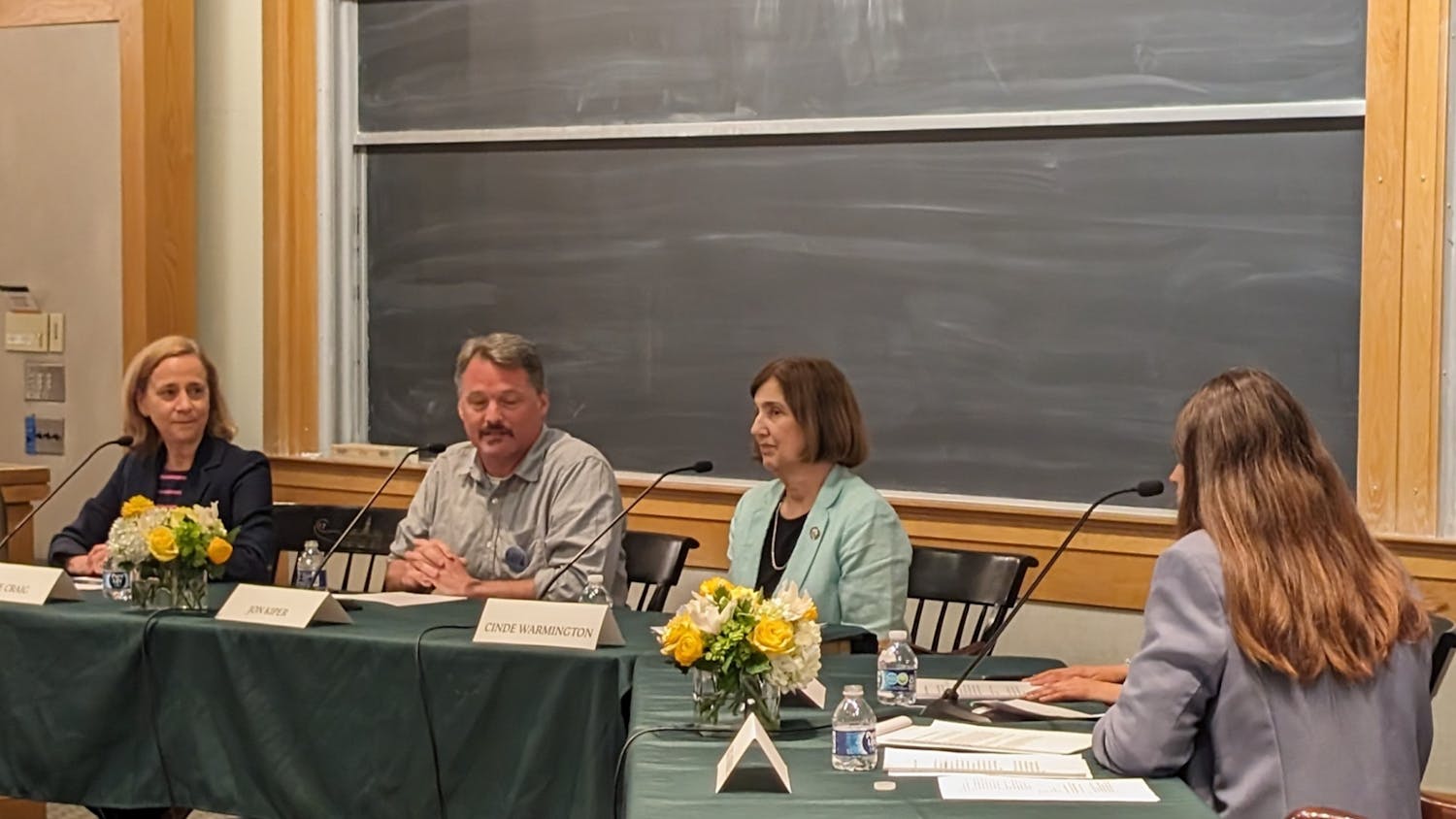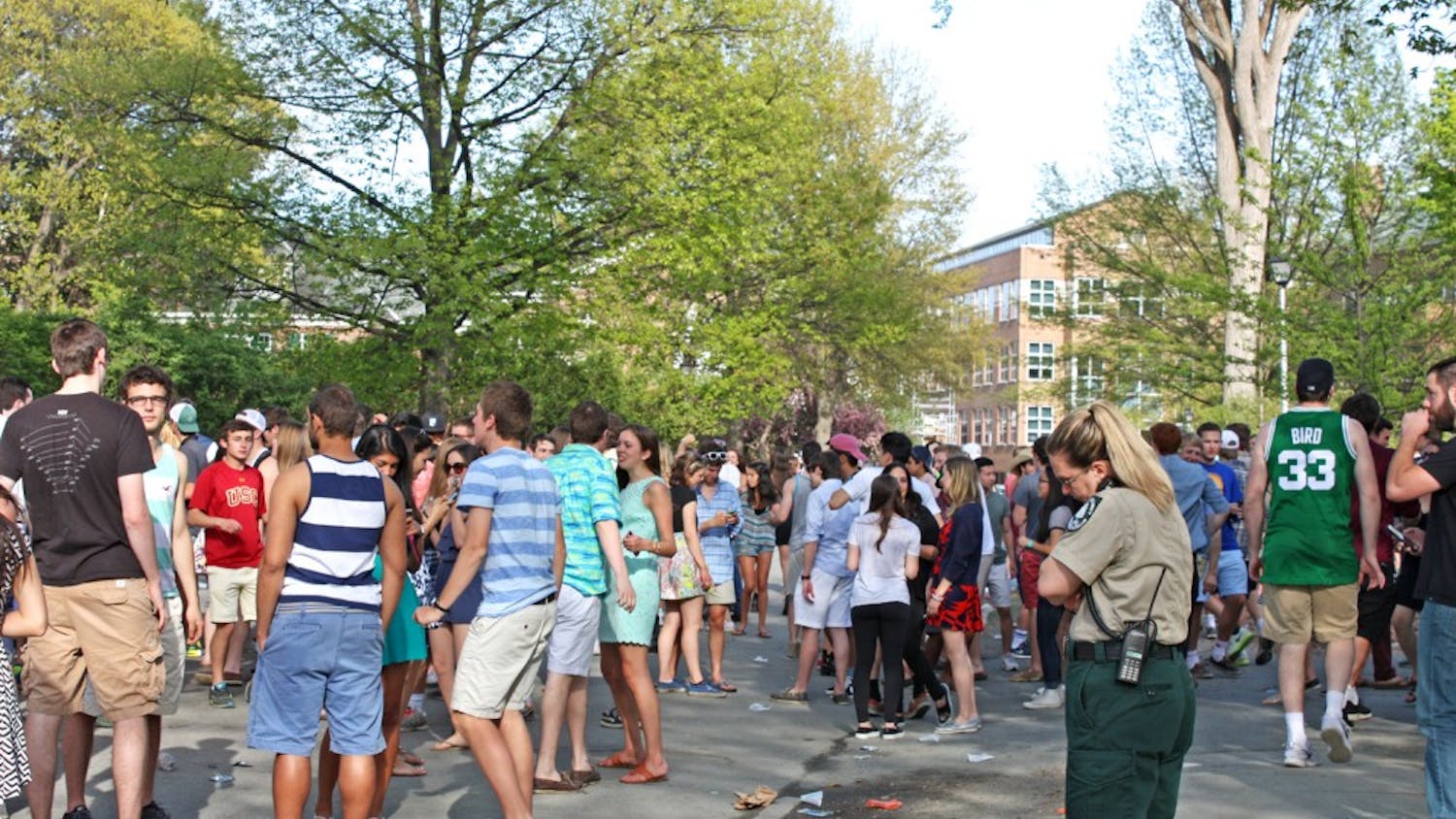The last stop in the disciplinary process for students, the Committee on Standards is the one and only body that determines the fate of possible honor code transgressors.
All Academic Honor Principle cases are adjudicated by the COS, whether or not the accused admits or denies the charges. Suspension-level, non-academic violations are also heard by the COS, but a student can also choose to admit responsibility and then confer with a senior dean for a fair punishment.
An individual COS committee is composed of two students, two faculty members, and one administrator. Either Dean of the College James Larimore or Senior Associate Dean of the College Daniel Nelson serve as the non-voting chairperson.
A COS hearing "is the fact-finding process and the place where the College officials hear the case and make a judgement on responsibility," Director of Undergraduate Judicial Affairs Marcia Kelly said.
Those serving on COS seemed to be generally satisfied with the COS process as a fair and effective method for enforcing College policy.
One area of fault, however, may reside in the possible overreliance on witness testimony and the lack of factual evidence.
"One thing is that basically when you're relying entirely on eyewitness accounts or first-person accounts, it's not really possible to have a perfect procedure because your information isn't perfect," said Jonathan Sussman '02, a member of COS. "If people aren't truthful, that's a basic flaw in the system, but there's not much you can do about that."
According to 2000-01 Annual Report, 27 students were accused of violating the Academic Honor Principle last year, the most recent period for which data is available. Ten students brought before the committee were found not responsible, one student was placed on College discipline, and 13 students were suspended for one to six terms.
Over the last two years, no student has been separated from the College for honor-principle misconduct. Punishments for honor-principle violations typically peak at four-term suspensions but vary significantly with the nature of each case.
The chair facilitates discussion and ensures the procedural validity of the hearing, but Larimore said that his duty also consists of protecting the right of the accused to a fair hearing by making sure that all evidence and potentially mitigating circumstances are presented.
"I really feel that it's important to leave the responsibility [for the decision] in the hands of people who are elected or appointed to serve on the COS," Larimore said.
Members are drawn from a large pool of students, faculty and administrators. The pool is composed of six students elected by the student body, six students appointed by the Dean of the College, 12 faculty members nominated by the Committee on Organization and Policy and elected by the faculty and eight administrators selected by the College president.
"Its one of the few committees where they make a special effort to hear the student's point of view, because they realize how important it is for these kinds of cases," said Amit Anand '03, a member of the COS. Anand added that he felt his opinion as a student was given equal consideration with an administrator's or a faculty member's in making rulings.
All students who come before the COS are allowed to submit a written testimonial defending their version of the alleged offense but are under no obligation to do so. Committee members read the testimonials prior to the hearing, and both sides have equal access to all of the evidence presented to the committee.
During the hearing, committee members interrogate the defendant based on his or her testimony or any other available evidence. One defendant cannot respond immediately to the other's testimony in cases in which more than one student is involved.
This process often takes around two to three hours, said Larimore, depending on the magnitude of evidence or ambiguity surrounding the case.
The defendant may arrange for witnesses, who are also allowed to submit a written testimonial, to testify in her favor. The defendant can also choose to be represented at the hearing by a College official or legal professional.
"I think in honor-principle occasions there generally is written evidence -- in the case of plagiarism, where you have copies of essays or written material that has been marked by the faculty member teaching the course where they think a violation has taken place," Larimore said.
The committee then reconvenes in a closed executive session once all questions have been answered to its satisfaction. Here, a majority vote is required for a final decision to determine the defendant's responsibility for the violation.
If COS finds an accused student responsible for violating the Academic Honor Principle, the committee then decides on an appropriate punishment, which ranges from a warning to separation from the College (expulsion). Although the defendant's prior record is not taken into consideration when determining the defendant's responsibility, the committee is allowed to examine this record while deciding on a punishment.
Appeals are allowed on very limited grounds. If evidence is unavailable at the time of the hearing or a procedural error surfaces that could have affected the outcome of the hearing, the accused may appeal the decision. However, an appeal cannot be made simply because the punishment was deemed excessive.
Kelly said that she has noticed a dramatic increase in the amount of academic honor principle and conduct cases over the last few years. While she could not point to a specific reason for the increase, widespread violations like the Computer Science 4 cheating scandal may have contributed to this trend.



